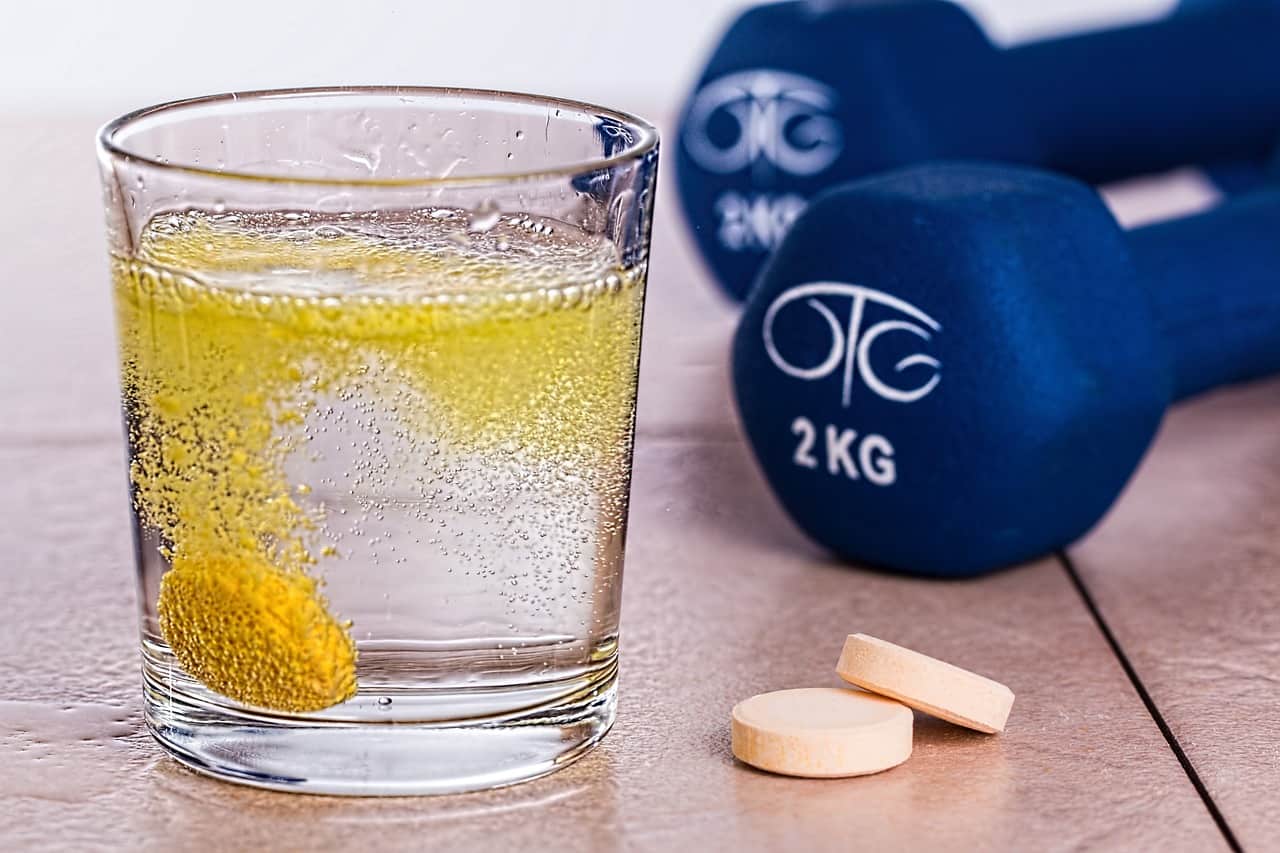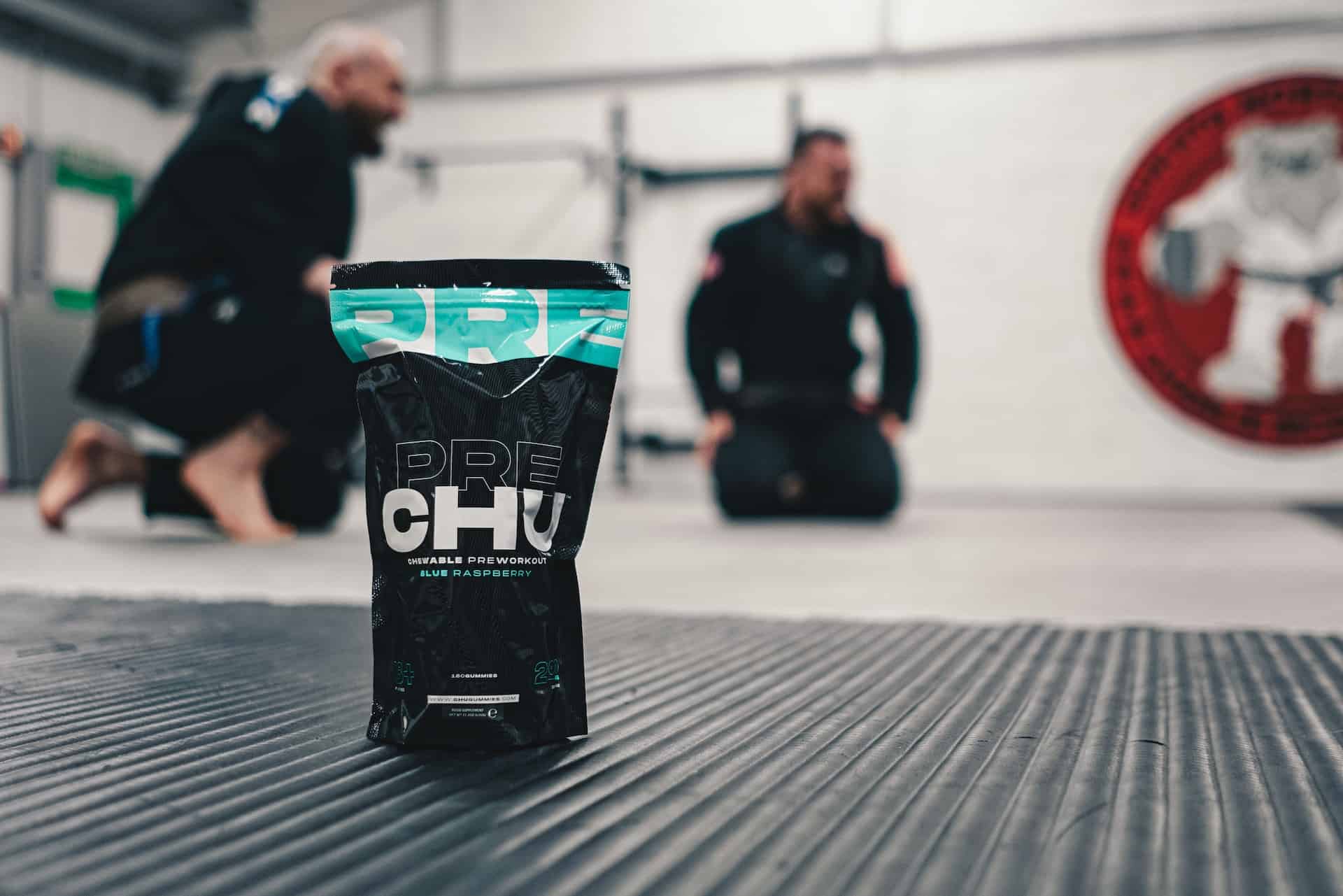Pre-workouts are an excellent way to amp up your stamina and maximize your gym time. This supplement contains nutrients, vitamins, and caffeine to jumpstart your workouts. Pre-workouts are a surefire way to maximize stamina and endurance. But of course, with all things, not everyone reacts to pre-workouts the same.
However, one common question remains among many consumers, how long does it take for pre-workout to kick in?
While the exact timeline varies from person to person, a general note is that it takes less than an hour. But don’t worry; this guide will tell you the actual time period. So let’s get started!
Composition of Pre-Workout Supplements

Pre-workouts have become a popular choice as supplements. These supplements are an energetic symphony of carefully selected ingredients to enhance your energy, focus, and endurance when working out.
Typically, pre-workouts are formulated with a blend of caffeine, amino acids, and other performance-activated compounds to cater to whatever goals you have for your exercises. But of course, formulations and composition change with brand and quality.
Stay tuned because we will dive deeply into the pre-workout formulation below.
Key Ingredients and Their Functions
Pre-workouts include a few key ingredients across most of its formulations, no matter the brand. Caffeine is a leading one among them, boosting alertness and energy levels to kick your butt into gear.
Many say, “Coffee does the same job as pre-workout!” because it has caffeine. But that isn’t exactly true. Caffeine alone will not provide the benefits a good pre-workout supplement will. Yes, it will wake you up and give you energy, but it won’t keep you hydrated when working out. Drinking coffee alone won’t give you all the nutrients and vitamins you need daily.
Beta-alanine is another key ingredient in reducing muscle soreness and fatigue and improving endurance by buffering lactic acid buildup. Creatine is also prevalent in pre-workouts for quick energy release during short bursts of exercise, promoting strength gains.
Other ingredients are citrulline and arginine, which promote healthy blood flow during workouts and make sure the nutrients are delivered to your muscles. Try getting all of that from a cup of coffee!
Variability in Formulations
We’ve mentioned some key ingredients in pre-workout supplements, but they can vary from one formula to another. Variations happen in the quantity and combination of the ingredients, with some incorporating BCAA for muscle support and added hydration.
These variations mean that individuals respond differently to different products. So, it’s crucial to make sure you can tolerate the variability according to your fitness level and goals.
Absorption and Metabolism

We need to understand how our bodies absorb and process pre-workouts. Our bodies kick into action when we consume pre-workout, absorbing essential nutrients like caffeine and amino acids. So, instead of just gulping down the drink because you saw a clip of Dwayne “The Rock” Johnson doing it, we need to learn how this supplement works its way into our bodies and does what it does.
Digestive Process for Pre-workout Ingredients
It all begins in the stomach, as most things do. Enzymes in the stomach break down the pre-workout ingredients after consumption. Carbohydrates become simple sugars, giving a swift energy release, and proteins become amino acids (already in the pre-workout).
As the mixture goes to the small intestine, nutrients are absorbed. Amino acids and sugars are absorbed into the bloodstream and become ready for the body to use during exercise. From the blood, it goes to the various organs like muscles and the brain, bringing the body in sync for an effective workout.
Factors Influencing Absorption Rate
There are several different factors influencing the absorption rate of pre-workouts. First, it’s the type of nutrients in the supplements; some absorb quickly, and others take their sweet time. Also, your digestive health plays a role in absorption. The better the digestion, the better the absorption. Other factors like existing food in the stomach, body weight, and overall health can also influence the duration of pre-workout absorption.
Typical Time Frame for Effectiveness
If you want to set realistic expectations and stay motivated, understand how quickly pre-workouts kick in for your friend might not do the same for you. And it’s not your fault either.
For most people, pre-workouts will take 30-45 minutes to kick in. It can be less or more depending on your sleep schedule, diet, digestion and absorption rate, and any underlying conditions you may have.
General Guidelines for When to Take Pre-workout
The best time for pre-workouts is early morning (before your workout) since you’ll just be getting out of bed, and that grogginess will be efficiently managed.
If you are hitting the gym in the evening, be mindful of the impact of pre-workout on your sleep that night. You can find stimulant-free options or can start with a lower dose, especially if you already have caffeine in your system from the day. The last thing you want to do is combine the two because you’ll be up all night.
Recommended Time Before Exercise
Taking pre-workout depends on personal preferences, workout timing, and sensitivity to caffeine. Ideally, consume it 30-60 minutes before exercising to allow ingredients like caffeine to peak in your system.
However, those sensitive to caffeine might benefit from a longer gap to avoid jitteriness and restlessness. Consider how long you’ll be working out and how hard you’ll be going at it, but 30 minutes before is a safe timeline.
Individual Variability
Whether embarking on a fitness journey, learning a new skill, or implementing a new business strategy, each adventure has its rhythm of progress. And taking pre-workouts is also an endeavor that will vary from person to person.
Acknowledging Differences in Response Times
Everybody responds differently to pre-workout. Some might react in 30 minutes, while others can take up to an hour to feel the effects. All of these time frames are okay.
It is wise to start with a lower dose to gauge your response time when starting pre-workout. Once you know the quantity you can tolerate, consume the exact amount and no more than that.
Factors Influencing Individual Response
Factors like metabolism and sensitivity influence how quickly your body will react to the ingredients. Other factors like digestion and absorption rate will also influence your response to the supplement.
The weather can also influence response rates, so an Arizonian might respond slower to the pre-workout than a Floridian to the heat.
Tips for Maximizing Pre-Workout Effectiveness

Time consistency, reading the ingredients list carefully, correct dosage, ensuring you’re hydrated and fueled properly, and having a good diet and sleep routine are some important tips to maximize the effectiveness of your pre-workout.
Consistency in Timing
This is an important consideration you need to make. Choose a time that aligns with your regular workout routine, whether mornings, afternoons, or evenings. This will help your body anticipate and use the energy boost effectively. Consume 30-60 minutes before working out.
Avoiding Common Mistakes
This is a key tip not emphasized often. You want to avoid common mistakes like not overdoing the dosage, wrong timing, not hydrating or eating healthy enough, and only relying on supplements.
Also, you should only drink pre-workout reasonably to avoid being up all night. And give it enough time to kick in before starting to work out. Drink your water and take other beneficial supplements. Pre-workout should never be substituted for meals and medications.
Duration of Pre-Workout Effects
The duration of pre-workout effects will last anywhere from 2 to 4 hours. But facts like metabolism, caffeine sensitivity, and the pre-workout formulation can influence the effects’ duration.
So, if you’re wondering how you strolled along the New York madness even after 2 hours at the gym, it was the pre-workout.
Potential Side Effects and Considerations
While pre-workouts can maximize performance, be careful of the side effects. Excessive caffeine can lead to jitters, insomnia, or increased heart rate. Some may be sensitive to certain ingredients. So make sure you read labels and start with lower doses to keep an eye on your tolerance levels. Remember to stay hydrated and eat a healthy diet as well.
Conclusion
There you have it! We hope this guide helped you finally answer how long it takes for pre-workout to kick in. While plenty of random timelines are floating around, 30-45 minutes is a common and ideal one.
Remember to research ingredients, start with small doses, and maintain hydration and a healthy diet.